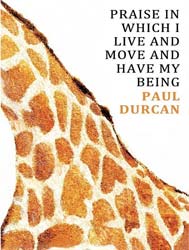Going Home to Mayo is a poem about the writer, Paul Durcan, travelling with his father as a child. Durcan was born in Dublin but would go back to visit his father’s home town of Mayo.
In Going Home to Mayo Durcan describes the calm of life in Mayo and says how he and his father had time to talk, something which they were often too busy to do in Dublin.

Going Home to Mayo
Leaving behind us the alien, foreign city of Dublin
My father drove us through the night in an old Ford Anglia,
His five-year-old son in the seat beside him,
The rexine seat of red leatherette,
And a yellow moon peered in through the windscreen.
‘Daddy, Daddy,’ I cried, ‘Pass out the moon,’
But no matter how hard he drove he could not pass out the moon.
Each town we passed through was another milestone
And their names were magic passwords into eternity:
Kilcock, Kinnegad, Strokestown, Elphin,
Tarmonbarry, Tulsk, Ballaghedereen, Ballyvarry;
Now we were in Mayo and the next stop was Turlough,
The village of Turlough in the heartland of Mayo,
And my father’s mother’s house, all oil-lamps and women,
And my bedroom over the public bar below,
And in the morning cattle-cries and cock-crows:
Life’s seemingly seamless garment gorgeously rent
By their screeches and bellowings. And in the evenings
I walked with my father in the high grass down by the river
Talking with him – an unheard-of thing in the city.
But home was not home and the moon could be no more outflanked
Than the daylight nightmare of Dublin city:
Back down along the canal we chugged into the city
And each lock-gate tolled our mutual doom;
And railings and palings and asphalt and traffic lights,
And blocks after blocks of so-called ‘new’ tenements –
Thousands of crosses of loneliness planted
In the narrowing grave of the life of the father;
In the wide, wide cemetery of the boy’s childhood.

